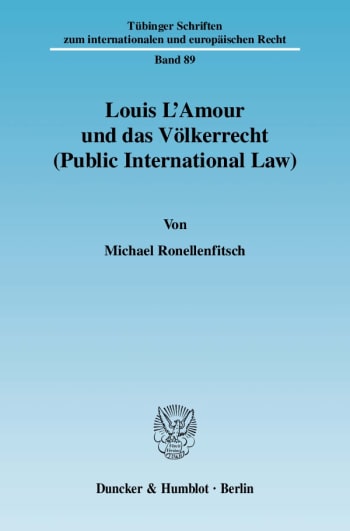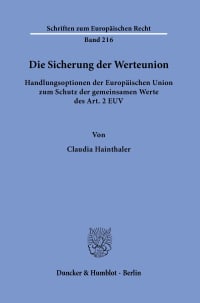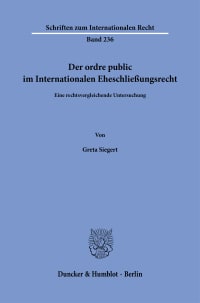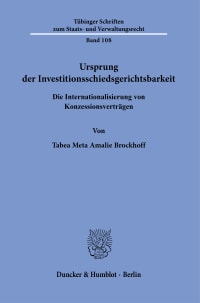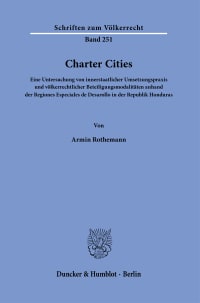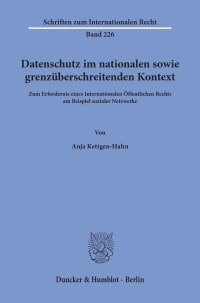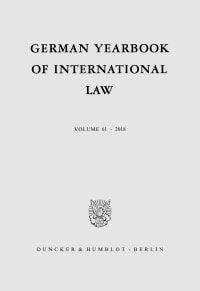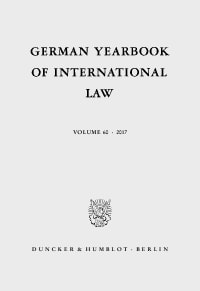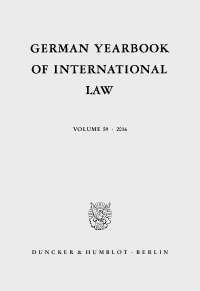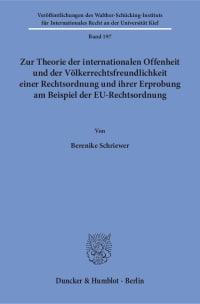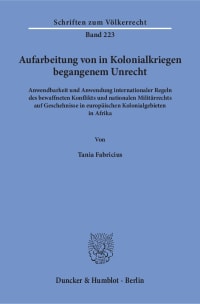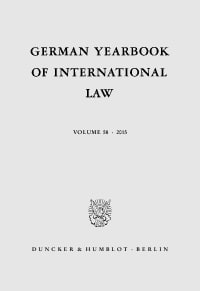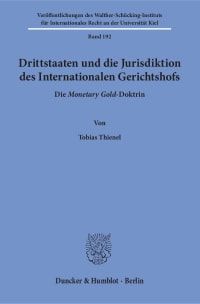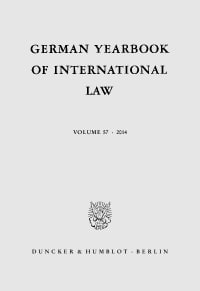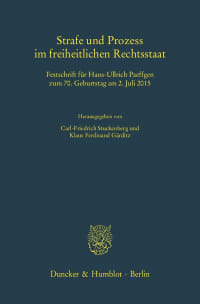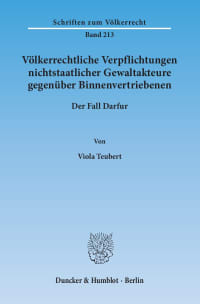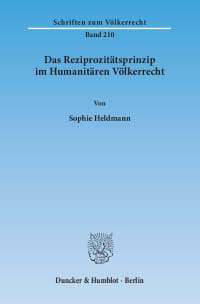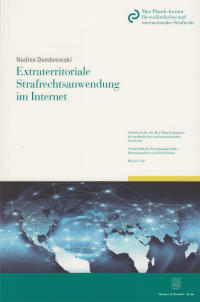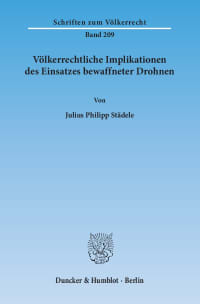Description
The alleged crisis of international law, which is attributed to the U.S., does not exist. Even in the Bush era, there was no real crisis, but there were irritations, based on a different access to international law. Legal reason of validity of the basic universal international law is its de facto compliance by the community of states. The willingness to observe international law depends on to what extent its own legal concepts are included in international law. In addition, there is a global ideological competition. Under a broad understanding of application of human rights and the environmental law, the European side attempts to convert the euro-centered law in a universal international law. Since the United States have ascented to a world power, they are not ready to join the euro-centered international law. The Americans are traditionally habituated to a life in the fight against a hostile environment and are driven by seeking civilizing progress. The frontier mentality described by Louis L’Amour still shapes America’s international understanding. Beside all the differences, European and U.S. law both do share the commitment to pluralism and tolerance, without which a universal law can not exist. Such a law can be enforced by transatlantic co-operation only. A crisis of international law as an order of peace can only rise if the defensive front against totalitarian tendencies is crumbling. The contest of cultures can always disorderly degenerate into a clash of cultures. Those who can not win anything peacefully can easily be encouraged to start riot and war. Those who feel to be losers of globalization have to be integrated into the social development. That is the task of the cosmopolitan national state whose ability to make sovereign decisions has to be ensured by international law. The reorientation of U.S. policies, that is associated with Barack Obama, will not affect the frontier mentality, but it will show more cosmopolitanism.
Overview
Inhaltsübersicht: 1. Teil: Ausgangslage: § 1 Krise des Völkerrechts?: Situation und methodischer Ansatz - Einstellungen zum Völkerrecht - "Frontier Heritage" - § 2 Louis L'Amour: Leben - Werk - Bedeutung - Einfluss auf das Völkerrechtsverständnis - 2. Teil: Sichtweisen: § 3 Europäische und deutsche Vorgaben des Völkerrechts - § 4 US-Vorgaben des Public International Law - 3. Teil: Universelles Völkerrecht: § 5 Geltung des universellen Völkerrechts: Universeller Geltungsanspruch des Völkerrechts - Modelle - Verhaltenseinstellungen - § 6 Institutionelle Rahmenbedingungen des universellen Völkerrechts - § 7 Anwendungsfelder des universellen Völkerrechts: Auswahl - Weltfriedensordnung - Menschenrechte - Umweltschutz - § 8 Krisenbereiche des universellen Völkerrechts: Auswahl - Zusammentreffen ("Clash") der Kulturen - Kampf der Kulturen - Irak-Krieg - Afghanistan-Krieg - 4. Teil: Schlussfolgerungen: § 9 Perspektiven des universellen Völkerrechts: Völkerrecht als globale Werteordnung - Der Staat im Völkerrecht - Konkurrenz der Nationalstaaten - § 10 Die Lehren aus dem Werk von Louis L'Amour für den völkerrechtlich geordneten Wettbewerb der Kulturen: Universelles Völkerrechtsverständnis - Trennendes und Gemeinsames im europäischen und US-amerikanischen Staatsverständnis - Schulterschluss und Aufgabenverteilung EU / USA - Neue Ansätze der transatlantischen Außenpolitik - § 11 Ergebnisse - Quellennachweise - Literaturverzeichnis
